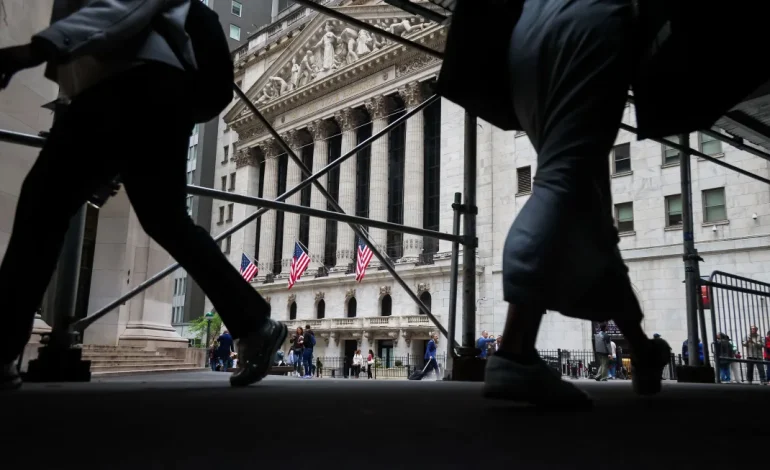Investor confidence in US financial markets took a hit after Moody’s downgraded the United States’ long-held perfect credit rating, citing increasing debt levels and political gridlock over deficit solutions.
The move, which lowered the country’s rating from Aaa to Aa1, brings Moody’s in line with the two other major rating agencies that had previously downgraded US sovereign debt.
The downgrade, issued late Friday, triggered immediate market reactions. US stock futures fell sharply, with Dow Jones futures declining by around 350 points (0.8%), S&P 500 futures down 1%, and Nasdaq futures off by 1.4%. Bond prices also declined, pushing the benchmark 10-year Treasury yield to 4.5%. Meanwhile, gold — a traditional safe-haven asset — rose by 1.4%, hitting $3,232 per troy ounce.
Moody’s explained that rising federal debt, coupled with high borrowing costs and a lack of bipartisan agreement on fiscal reforms, undermines the US’s long-term credit outlook. The downgrade is the first from Moody’s since 1917.
The development has reignited discussions around the so-called “Sell America” trend — a term used earlier this year when investors pulled money out of US equities and bonds amid concerns about trade policy and fiscal sustainability. Market turbulence had eased in recent weeks after a temporary thaw in trade tensions and optimism around tax reform. However, Moody’s action could revive those worries.
Treasury Secretary Scott Bessent sought to downplay the significance of the downgrade, arguing it relied on outdated assumptions. He reiterated that the administration’s proposed tax reforms would stimulate economic growth and reduce the nation’s debt-to-GDP ratio, which currently stands at 123%, up from 92% in 2011 when S&P first downgraded the US.
Still, some market analysts believe the downgrade could rattle investor sentiment. Chris Rupkey, chief economist at FwdBonds, noted the historical precedent from 2011 when markets experienced a sharp sell-off following S&P’s downgrade. Others, like Michael Peterson of the Peter Peterson Foundation, see the rating cut as a warning about unsustainable fiscal practices.
Beyond domestic fiscal concerns, the downgrade comes at a time when the US is also contending with potential trade disruptions. Treasury Secretary Bessent signaled that countries not aligning with the US on trade terms could face tariffs as high as 50%, echoing President Trump’s earlier tariff announcements.
Financial markets responded accordingly. The dollar weakened, global equities fell, and US Treasury yields climbed further. The 30-year Treasury yield briefly touched 5%, a psychologically significant level not seen since 2023.
Some experts argue that the downgrade could accelerate the global shift away from US assets. Vasu Menon, an investment strategist at Oversea-Chinese Banking Corp., said the change may bolster the appeal of non-US assets, particularly European equities.
Despite concerns, some market participants maintain a level of caution rather than panic.
“If history is any guide, rating action impact has typically been short-lived,” said Mohit Kumar, chief economist at Jefferies International.
However, he acknowledged that current geopolitical tensions and fiscal challenges present a different backdrop from previous downgrades.










The latest news in your social feeds
Subscribe to our social media platforms to stay tuned